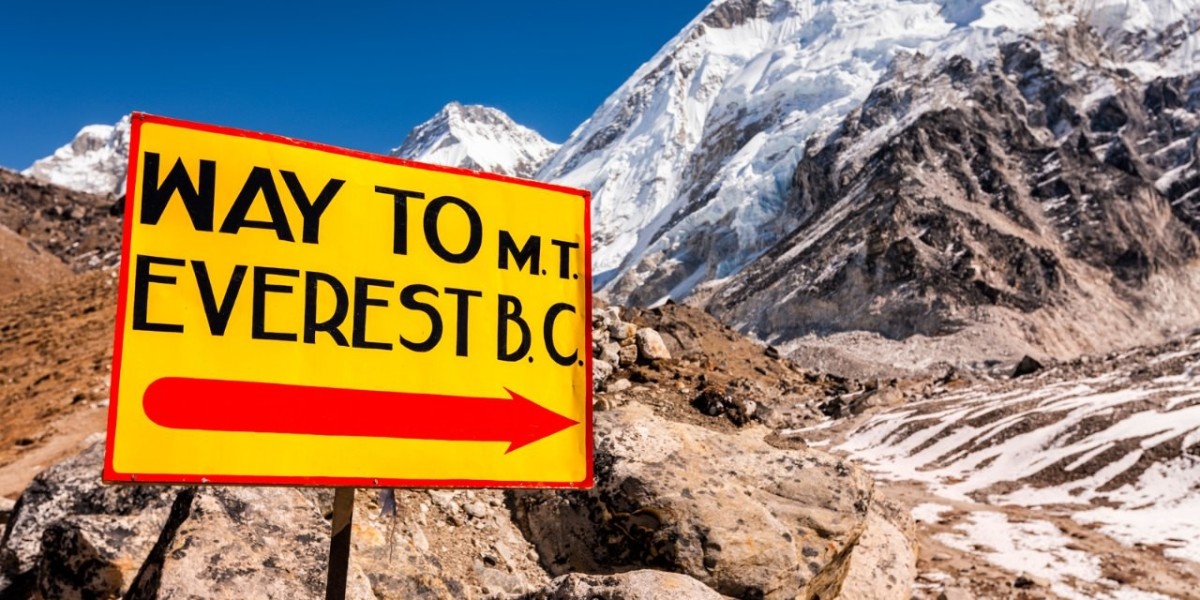Nestled in the majestic Himalayas, the EBC Trek package stands as an iconic adventure, captivating the hearts of trekkers from around the globe. This extraordinary journey takes intrepid travelers through rugged mountain trails, pristine landscapes, and the enchanting Sherpa culture of Nepal. Spanning approximately 130 kilometers, the trek culminates at the legendary Everest Base Camp, where mountaineers set off on their conquest of the world's highest peak. In this article, we will delve into the captivating allure of the Everest Base Camp Trek, from its awe-inspiring natural wonders to the challenges and rewards that await every intrepid adventurer.
- The Route and Highlights: The Everest Base Camp Trek begins with a scenic flight from Kathmandu to Lukla, a small mountain airstrip that serves as the gateway to the Everest region. From Lukla, trekkers embark on a multi-day journey, traversing picturesque Sherpa villages such as Namche Bazaar, Tengboche, Dingboche, and Gorak Shep. Along the way, they are greeted with breathtaking panoramas of snow-capped peaks, including Ama Dablam, Lhotse, Nuptse, and, of course, Mount Everest itself.
The trek offers an array of natural wonders, including deep river valleys, serene alpine forests, and awe-inspiring glaciers. The famed Khumbu Icefall, a treacherous section of the climb to the summit of Everest, provides an up-close encounter with the immense challenges faced by mountaineers.
- Sherpa Culture and Hospitality: One of the most captivating aspects of the Everest Base Camp Trek is the opportunity to immerse oneself in the rich Sherpa culture. The Sherpas, renowned for their mountaineering expertise and warm hospitality, have inhabited the high-altitude regions of the Everest area for generations.
Trekkers have the chance to visit monasteries, such as Tengboche Monastery, where they can witness traditional Buddhist rituals and receive blessings from resident monks. The Sherpa people's warm and welcoming nature is evident as they share their stories, traditions, and delicious local cuisine, providing a truly immersive cultural experience.
- Challenges and Preparation: Undertaking the Everest Base Camp Trek is not without its challenges. The trail reaches elevations of over 5,000 meters (16,500 feet), subjecting trekkers to reduced oxygen levels and the risk of altitude-related ailments. Proper preparation and acclimatization are crucial to ensuring a safe and successful journey.
Physical fitness training, including cardiovascular exercises and strength-building activities, is recommended in the months leading up to the trek. Mental preparedness, determination, and a positive mindset are equally important in overcoming the physical and mental challenges that may arise along the trail.
Best Time to Trek: The best time to undertake the Everest Base Camp Trek is during the spring (March to May) and autumn (September to November) seasons. These months offer stable weather, clear skies, and moderate temperatures, creating ideal conditions for trekking. Spring presents lush greenery and blooming rhododendrons, while autumn offers vibrant colors and festive celebrations in local villages.
Conclusion: The Everest Base Camp Trek is a journey of a lifetime, allowing adventurers to step foot on the same trail that countless mountaineers have trodden on their quest for the summit of Mount Everest. It is an experience that combines natural beauty, cultural immersion, and personal triumph.








